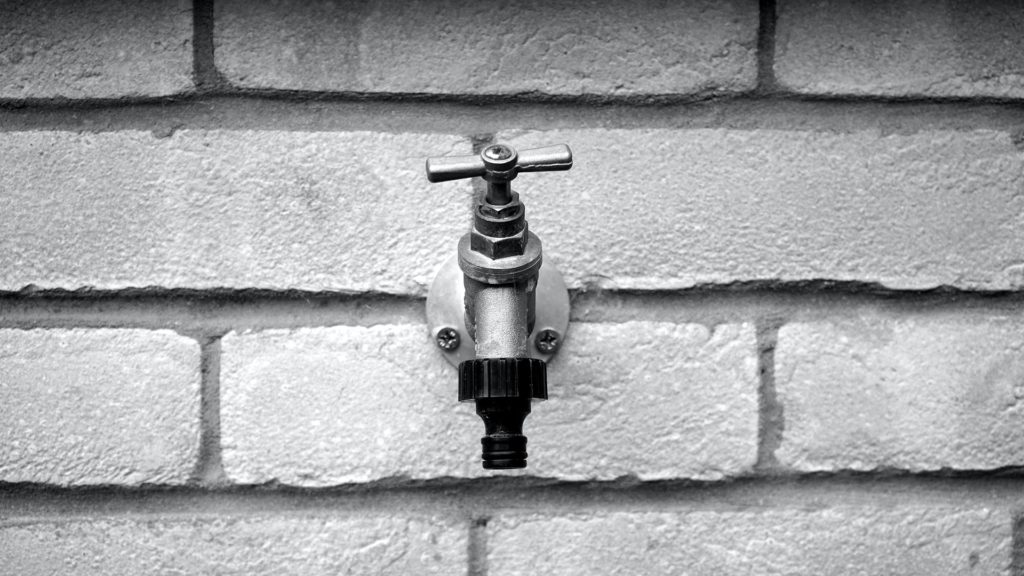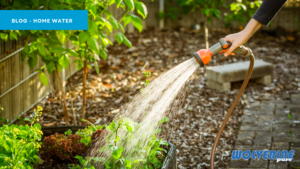4 Ways They Are Drastically Different
1) They come from different sources (sort of)
While both municipal water and well water systems pull water from common geological sources, the way the water is treated is drastically different.
How does municipal water work?
The majority of municipal water comes from surface water—rain or snow that’s collected in streams, rivers, lakes, and reservoirs. Another source for municipal water is groundwater, which comes from rain or snow that seeps into the soil and is held in underground aquifers. Water from these two sources is pumped into a municipal water treatment facility, where it’s filtered to remove harmful contaminants and treated to ensure EPA-standards for quality. In many municipalities, chlorine is added to water to kill inactive microorganisms that may have made it through the earlier treatment processes, and fluoride is added to promote dental health.
How does well water work?
Well water comes from groundwater beneath your home. Well water homes have private, often electric-powered pumps that draw the water up from the underground aquifers, through a gravel screen that removes large particles, and into a tank where it is stored for use. When you turn on the tap in your home, water is pulled from your storage tank and brought through your faucets. Since well water comes directly from the ground, it is not treated or decontaminated.
Whether your home’s water comes from a private well or a municipal water supply, we all want our water to be pure, clean, and healthy. The best way to take the guesswork out of your home’s water quality is to install a whole home water purification system.
2) One of them is way more cost-effective
Over the past few years, water bills have been going up and up. Many municipal water systems around the country have aging infrastructure that’s costly and time-consuming to upgrade. Extreme weather events, such as intense storms, floods, or even drought can also put strain on local water systems, forcing municipal providers to spend more of their funding on repair, water treatment, or even finding new sources for water. These rising costs are passed down to consumers.
Since well water homes have private pump systems, these homeowners don’t get a monthly water bill. However, if your pump relies on electricity, you may have a slightly higher electricity bill. And if your well water system needs a repair, the cost falls to you.
3) They have different contamination risks
Since well water is sourced right from the ground, it’s thought to be fresher, contain more minerals, and remain free from chemicals. However, the extra minerals found in groundwater can cause build-up and staining on your appliances and fixtures. In some cases, high mineral content can even cause your water to smell. Plus, since there is no outside entity regularly testing the quality of your water, it is common for well water to become contaminated. Whether it’s run-off from a nearby farm or factory, or a ruptured sewer line, well water owners should remain diligent about consistently testing their water for microorganisms, nitrates, heavy metals, and other contaminants. These can cause serious health problems if left unmitigated.
Municipal water is consistently tested for quality using established EPA-standards. In addition, municipalities are responsible for producing annual water quality reports that are made available to the public. Municipal water can still include low levels of certain contaminants that may affect hardness, freshness, and taste. But unless your region is undergoing a crisis, such as a flood or natural disaster, it’s unlikely that your municipal water source will become contaminated to an unsafe level.
4) Both can have pain-in-the-neck maintenance needs
If a municipal water main breaks or a natural disaster makes the water supply unsafe to drink, homeowners can suddenly find themselves without reliable water for drinking, cooking, and washing. Repairs or mitigation for large water supply systems can take a long time to complete, even with the use of large scale emergency repair services. Drawing your water from the municipal water supply means that you’re stuck on someone else’s timetable if repairs or maintenance are required.
If you own a private well and run into a service issue, you can easily call a repair service. Since water is considered an essential service for a home, many well water repair service companies have 24/7 emergency response availability. It goes without saying that it can be faster to provide service for one home versus an entire municipal system. However, as the owner of the private well, you will be stuck with the repair bill, which can be costly.
Time to consider a whole home system
Whether your home’s water comes from a private well or a municipal water supply, we all want our water to be pure, clean, and healthy. The best way to take the guesswork out of your home’s water quality is to install a whole home water purification system. A whole-home system ensures that the water coming out of your faucets and running through your appliances is free from damaging minerals and harmful contaminants. Have confidence that when you turn on your tap the water is safe and it tastes pure and refreshing.
Contact the Wolverine Water team today to get a free water test. In just 20 minutes, we can help determine exactly what’s impacting your water quality and recommend a system customized for your home. Schedule a free water test today!





